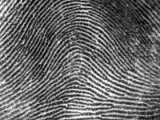What happened that day?
See historic events for any day of the year by entering the date below. Why not try your birthday?
Kiwi of the Week
Today in History

1920 Fingerprints help convict murderer
In the Auckland Supreme Court, Dennis Gunn was convicted of the murder of a postmaster and sentenced to death. In what was possibly a world-first involving a capital crime, Gunn's conviction was based almost entirely on fingerprint evidence.
On Saturday 13 March 1920 Augustus Braithwaite, the postmaster at Ponsonby, was murdered in his own house. His keys were taken and the Post Office was broken into. The strong room was opened and ransacked. Fingerprints were found on three cash boxes, which were sent to the Fingerprints Department in Wellington for analysis.
On Monday the 15th a former prison warder named Hughes informed the police that he had seen Dennis Gunn hanging around the Post Office. Hughes recognised Gunn from an encounter in 1918 when the latter had been sentenced to two weeks' imprisonment for failing to enroll for military service. He was fingerprinted at the time.
Gunn's name and that of one other suspect were sent by telegram to the Fingerprints Department. By Tuesday 16 March the fingerprints on the cash boxes were matched with Gunn's fingerprint form. He was arrested the next day and charged with murder and burglary. Property stolen during the robbery, including Braithwaite's keys, was found in a gully near where Gunn lived with his mother. A recently fired pistol was also found. Grooves on this weapon corresponded with marks on the two bullets found in Braithwaite's body. There was also a fingerprint on the weapon which the Fingerprint Office again confirmed as Gunn's.
Gunn's lawyer argued that the fingerprint evidence was inconclusive. While admitting to his part in the robbery, Gunn claimed that Braithwaite was killed by a man known as Alfred or Bonny O'Meara. The jury was not convinced. After a five-day trial Gunn was convicted and sentenced to death on 28 May. He was hanged in Auckland on 22 June 1920.














